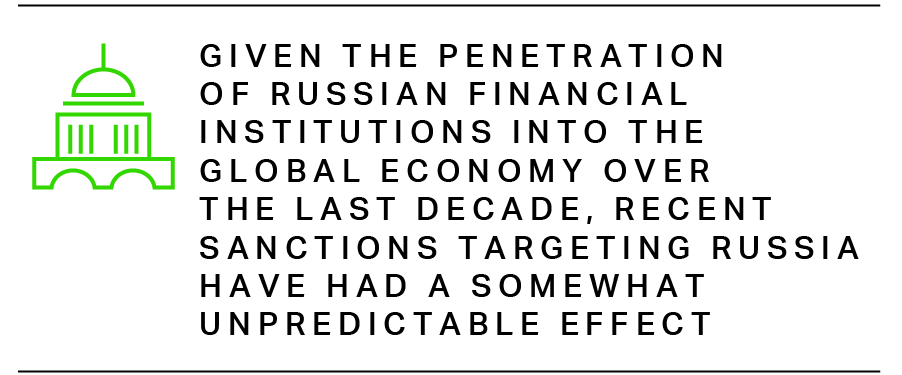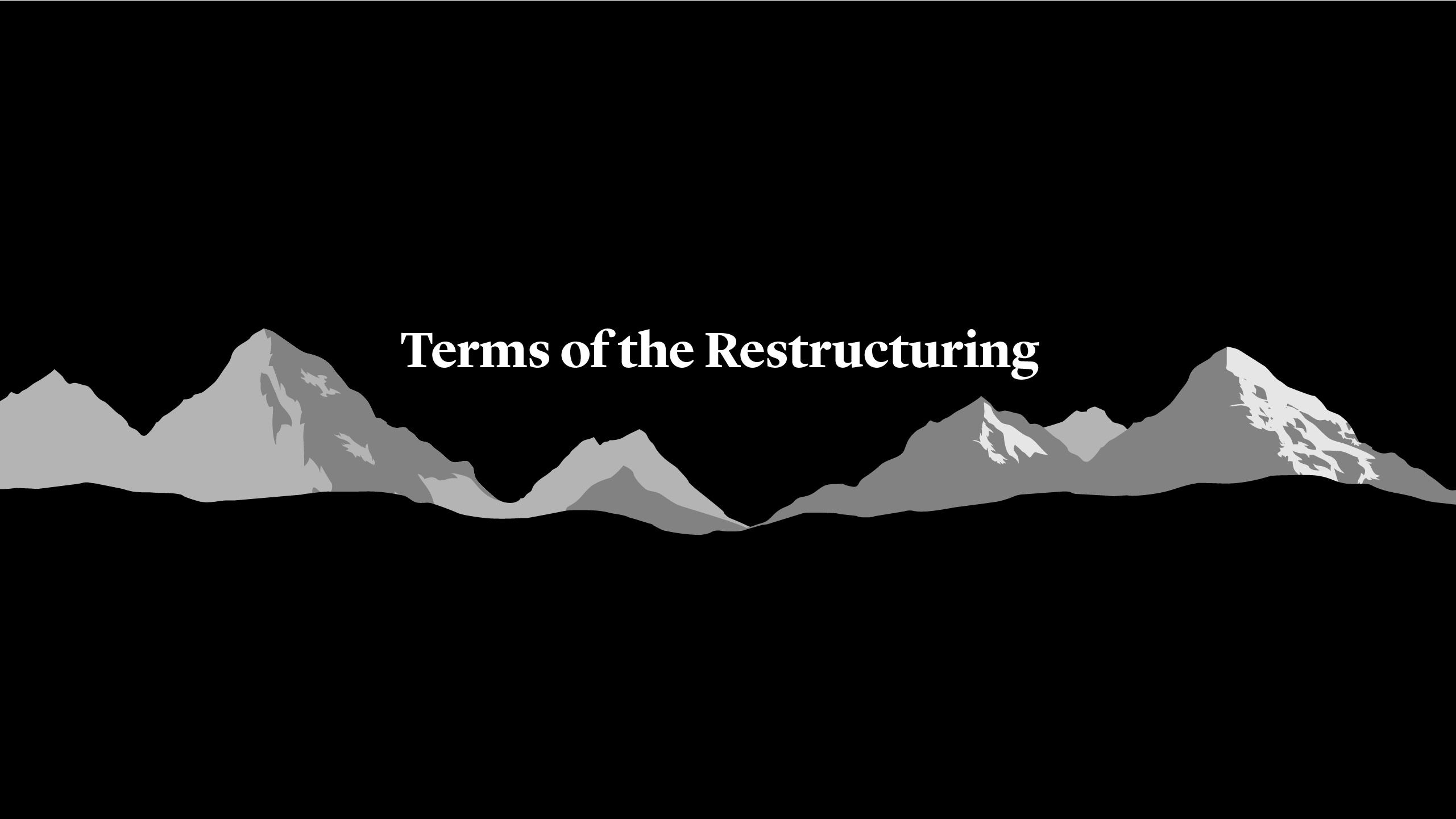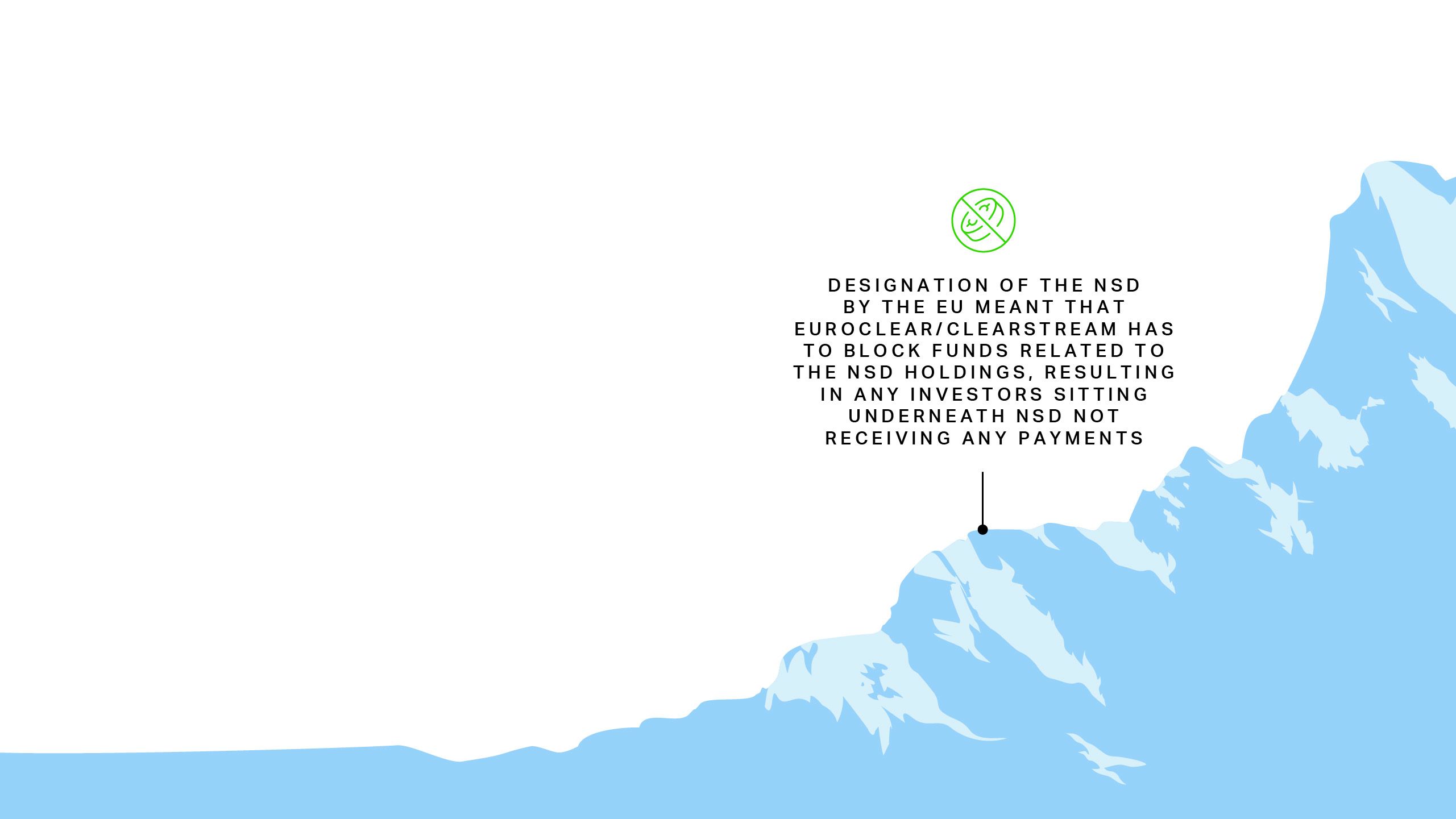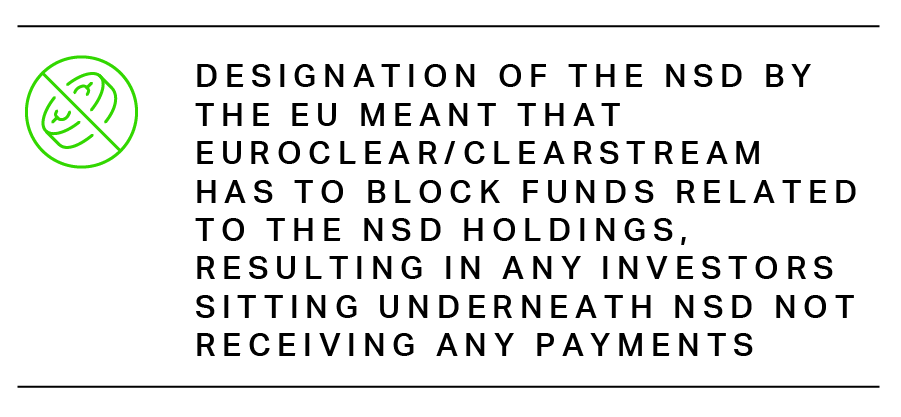
The unprecedented number and scope of sanctions introduced by the U.S., UK and European Union (EU) in response to Russia’s invasion of Ukraine has created a web of non-trivial issues in debt restructurings. While sanctions are not new and there is certainly some history of dealing with sanctions issues in debt restructurings, until last year those issues have been rather straightforward and concerned primarily the debtor’s sanctioned status.

Sanctions generally apply if there is a personal or territorial nexus. For example, a citizen (and in the U.S. a green card holder) of or person incorporated in a sanctioning jurisdiction (“personal nexus”), irrespective of their location, and any person located or organized in the territory of a sanctioning jurisdiction (“territorial nexus”) is required to comply with applicable sanctions. Notably, dollar transactions are considered to be within U.S. sanctions jurisdiction on the basis that all dollar transactions clear through the U.S.
This article is not intended to provide an in-depth analysis of the issues that one may encounter, but is more of a snapshot of potential roadblocks. Given that sanctions are evolving and new measures may be imposed at any time, every case needs to be considered thoroughly and on its own merits.



Given the penetration of Russian financial institutions into the global economy over the last decade, recent sanctions targeting Russia have had a somewhat unpredictable effect and caused issues in transactions and restructurings that seemingly have no relationship with the country. Examples of those include the restructuring of a Kazakhstani oil company and Chinese real estate developer given that the debt instruments requiring restructuring were held by sanctioned Russian banks or through sanctioned Russian custodians.

Given the penetration of Russian financial institutions into the global economy over the last decade, recent sanctions targeting Russia have had a somewhat unpredictable effect and caused issues in transactions and restructurings that seemingly have no relationship with the country. Examples of those include the restructuring of a Kazakhstani oil company and Chinese real estate developer given that the debt instruments requiring restructuring were held by sanctioned Russian banks or through sanctioned Russian custodians.
Often, especially with respect to publicly traded debt cleared through the international clearing systems, the fact that creditors include sanctioned persons may not be known at the start. Once the information is obtained it can cause delays as well as require the restructuring terms to be revisited.
A typical debt restructuring contemplates certain amendments to the terms of the debt instrument, including debt held by or through sanctioned persons. Debt instruments can be considered to constitute an asset which, by operation of sanctions, could be frozen and dealings with which could be prohibited if undertaken within the jurisdiction of a sanctioning authority.
Debt documentation requires all holders to be treated equally and it is often not possible to implement a restructuring with respect only to non-sanctioned holders. Given that any restructuring would arguably entail some alteration of the assets represented by the debt instrument, even if none of those actions result in the funds becoming available to or for the benefit of a sanctioned person, the implementation of the restructuring might constitute a dealing with blocked assets/frozen funds. The issue thus arises for the non-sanctioned holders supporting the restructuring whether they are allowed to vote for or take other actions to support the restructuring without clearance from the relevant sanctions authority. So far, the method has been to approach the sanctions authority for an authorization.

Often, especially with respect to publicly traded debt cleared through the international clearing systems, the fact that creditors include sanctioned persons may not be known at the start. Once the information is obtained it can cause delays as well as require the restructuring terms to be revisited.
A typical debt restructuring contemplates certain amendments to the terms of the debt instrument, including debt held by or through sanctioned persons. Debt instruments can be considered to constitute an asset which, by operation of sanctions, could be frozen and dealings with which could be prohibited if undertaken within the jurisdiction of a sanctioning authority.
Debt documentation requires all holders to be treated equally and it is often not possible to implement a restructuring with respect only to non-sanctioned holders. Given that any restructuring would arguably entail some alteration of the assets represented by the debt instrument, even if none of those actions result in the funds becoming available to or for the benefit of a sanctioned person, the implementation of the restructuring might constitute a dealing with blocked assets/frozen funds. The issue thus arises for the non-sanctioned holders supporting the restructuring whether they are allowed to vote for or take other actions to support the restructuring without clearance from the relevant sanctions authority. So far, the method has been to approach the sanctions authority for an authorization.


To the extent the debtor has Russian exposure and depending on the level of that exposure, sectoral sanctions or investment bans could create limitations in respect of available restructuring options.
Examples of options that may be problematic include amending the terms of the debt instrument such that it would be considered a new instrument (which in a holistic restructuring will inevitably be the case given that core commercial terms of debt are likely to be affected) or offering a new instrument in connection with the restructuring.
The U.S. new investment ban could potentially prohibit a U.S. person from accepting a debt instrument with amended pricing terms, even if no additional capital is committed, if the debtor derives 50% or greater revenue from investments in Russia. The UK restrictions on access to capital for persons connected with Russia include assets majority owned by persons connected with Russia, thus requiring additional diligence in respect of the debtors’ ownership structure even if the debtor itself has minimal to no business in Russia.



Designation of the National Settlement Depository (NSD) by the EU, in combination with Russian countersanctions, has created a somewhat unique challenge to the traditional settlement infrastructure in the Eurobond market. Following the opening of a bridge between the NSD and Euroclear/Clearstream a few years ago, it is typical to see Russian investors investing in the internationally traded bonds through the Russian infrastructure, with custody accounts held through the NSD as a direct participant in Euroclear/Clearstream.
A global note in a customary Eurobond is registered in the name of the nominee for the international clearing system, with payments processed by the paying agent making a payment to the clearing system which then distributes the relevant payments through its accounts on a pro rata basis. Designation of the NSD by the EU meant that Euroclear/Clearstream has to block funds related to the NSD holdings, resulting in any investors sitting underneath NSD not receiving any payments. Customary bond documentation does not contemplate the possibility of bifurcated payment streams allowing to pay to the investors directly and the clearing systems are not normally set up to apply payments on a non-pro rata basis. While there have been many attempts to overcome this problem, no perfect solution has yet been found.

Designation of the National Settlement Depository (NSD) by the EU, in combination with Russian countersanctions, has created a somewhat unique challenge to the traditional settlement infrastructure in the Eurobond market. Following the opening of a bridge between the NSD and Euroclear/Clearstream a few years ago, it is typical to see Russian investors investing in the internationally traded bonds through the Russian infrastructure, with custody accounts held through the NSD as a direct participant in Euroclear/Clearstream.

A global note in a customary Eurobond is registered in the name of the nominee for the international clearing system, with payments processed by the paying agent making a payment to the clearing system which then distributes the relevant payments through its accounts on a pro rata basis. Designation of the NSD by the EU meant that Euroclear/Clearstream has to block funds related to the NSD holdings, resulting in any investors sitting underneath NSD not receiving any payments. Customary bond documentation does not contemplate the possibility of bifurcated payment streams allowing to pay to the investors directly and the clearing systems are not normally set up to apply payments on a non-pro rata basis. While there have been many attempts to overcome this problem, no perfect solution has yet been found.



Another rather unique set of issues has been created by the ban on trustee services.
While it could be argued whether or not the traditional bond trustees were meant to be captured by the relevant sanctions, the sanctions did result in most of the trustees on Eurobonds with either a Russian business debtor or Russian creditors in the pool resigning (often without a replacement).
To the extent no replacement trustee has been appointed, the most obvious issue this created is documentary – to amend the bond documents technically a trustee would be required to sign a supplemental trust deed. The second not-so-obvious issue is the bondholders’ inability to exercise acceleration and enforcement rights. Typical Eurobond terms would contain a no-independent action clause restricting the individual bondholder’s ability to take actions against the debtor and requiring it to act through the trustee. The only exception to this is where the trustee has become obliged to act but has not acted within a reasonable period of time.
Given the broad exemptions under the trust deeds specifically stating that the trustee is not obliged to act where to do so would be in contravention of applicable law, this creates a vacuum where the trustee cannot act and cannot be displaced without the terms of the bonds being amended.




